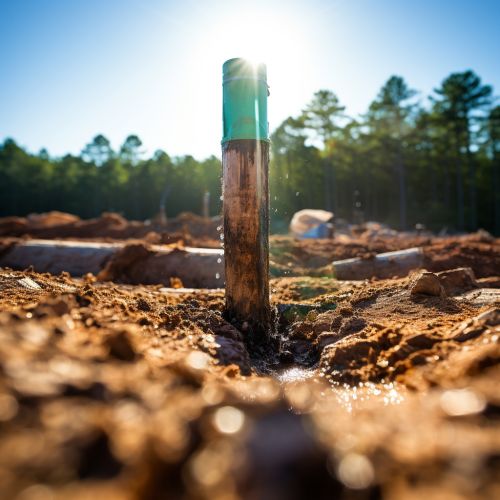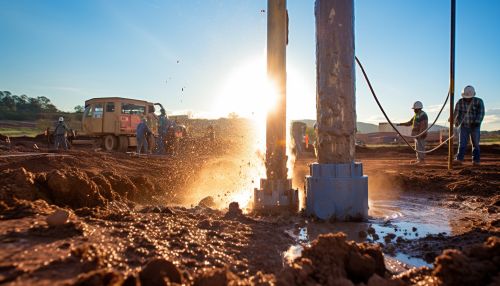Hydrogeology
Introduction
Hydrogeology, also known as groundwater hydrology, is a branch of earth sciences that focuses on the distribution, movement, and properties of water present beneath the earth's surface in soil pore spaces and fractures of rock formations. It is a critical discipline in understanding water resource management and environmental sustainability.
Fundamentals of Hydrogeology
Hydrogeology is primarily concerned with the study of water cycle and its interaction with rock formations. It involves the investigation of the properties of aquifers, the permeability of soil and rock substances, and the movement of water through these materials.
Aquifers
An aquifer is a geological formation or structure that stores and transmits water. It plays a crucial role in the hydrological cycle by storing water and releasing it to the surface during periods of low precipitation. Aquifers are typically composed of permeable materials such as sand, gravel, or fractured rock that can hold and transmit water.
Permeability
Permeability is a measure of the ability of a porous material to allow fluids to pass through it. In hydrogeology, it is a critical factor in determining how easily water can move through an aquifer.
Groundwater Movement
The movement of groundwater is dictated by the principles of fluid dynamics, specifically Darcy's Law. Groundwater moves from areas of high pressure to areas of low pressure, and its speed is determined by the permeability of the material and the hydraulic gradient.
Groundwater Resources
Groundwater is a vital resource, providing drinking water for people worldwide and irrigation for agriculture. The study of hydrogeology is essential in managing these resources effectively and sustainably.
Groundwater Extraction
Groundwater extraction involves the removal of water from an aquifer, typically through the use of wells. Over-extraction can lead to a number of environmental problems, including land subsidence and saltwater intrusion.
Groundwater Recharge
Groundwater recharge refers to the process by which water moves from the surface to groundwater. Recharge can occur naturally through precipitation or artificially through methods such as irrigation or injection wells.
Groundwater Contamination
Groundwater can be contaminated by various sources, including industrial waste, agricultural runoff, and septic systems. Once contaminated, groundwater can be difficult and expensive to clean.
Hydrogeological Investigation
Hydrogeological investigations are carried out to understand the characteristics of specific aquifers, the quality of the groundwater they contain, and the potential impacts of human activities on these resources.
Field Methods
Field methods in hydrogeology include drilling wells, performing pump tests, and sampling groundwater. These methods provide direct information about the aquifer and the water it contains.
Modeling
Hydrogeological modeling involves the use of mathematical models to simulate the flow of groundwater and the transport of contaminants. These models can be used to predict future conditions and guide management decisions.
See Also


